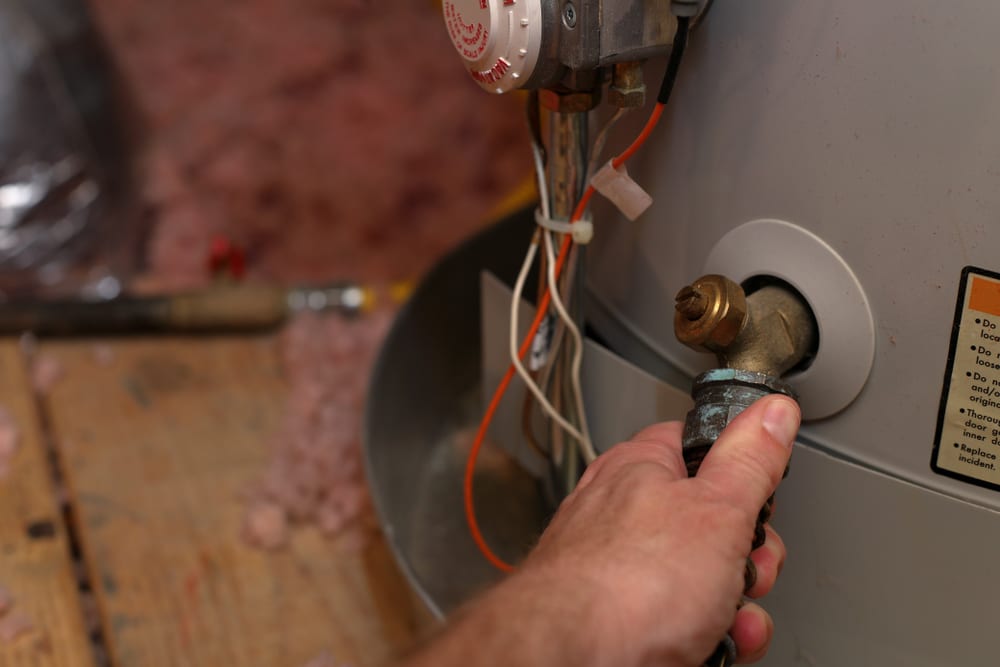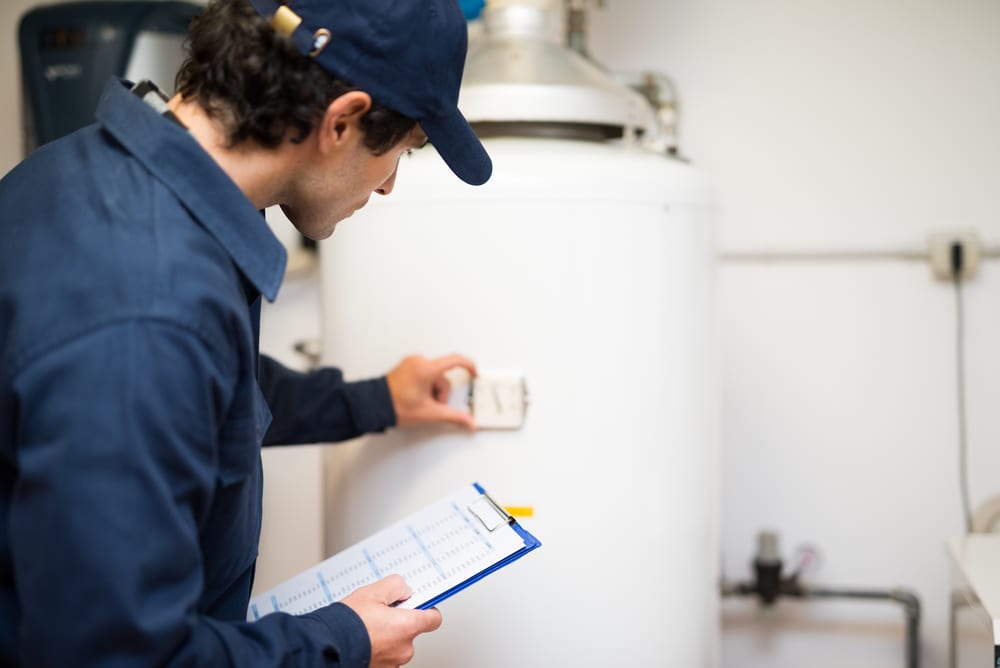
Your water heater is a very valuable appliance in your home. That’s why it’s important to maintain it and drain your water heater every year, no matter what type of storage-tank you own. Over time, sediment builds up within your appliance, which compromises its energy efficiency and can lead to issues throughout your home. Avoid unnecessary issues by following these simple steps.
Step 1: Check The Pressure-Relief Valve
First, you need to check the pressure-relief valve. This valve keeps your tank from bursting due to excess pressure. To ensure that the valve is functioning properly, you must first turn off the power to the water heater — if your tank runs on electricity, simply switch it off, if it runs on gas, switch the heater to ‘pilot’ mode.
Next, trip the lever on the valve in the cold water supply line. To minimize mess, place a bucket under your pressure-relief valve. Once you open the valve, you should hear hissing air and see the water. If you do not, then it more than likely needs to be replaced.
Step 2: Run Your Drain Line
The next step to draining a water heater is to connect a garden hose to the water tank. Run the garden hose to the exterior of your house. Depending on where your water heater is located in your home, you may need more than one length of hose.
To be on the safe side, give the water in the switched-off heater plenty of time to cool down before opening the drain valve — this may be a few hours. If you would like to speed up the process, you can take a long, hot shower or utilize what hot water you have left elsewhere in your home.
Step 3: Flush Your Tank
After opening all of the hot water faucets around your home, open the water heater drain valve. If you have chosen to use a pump, now is the time to activate it. Drain the water heater completely, then turn on the water supply in short bursts to help dislodge any sediment buildup. If needed, remove the drain valve so that sediment can exit through the opening. Keep several large buckets nearby, you may need them for this process!
Tips & Insights: How to Keep the Upstairs Floor Cool in the Summer
Step 4: Finish Draining
Once the water draining from your water heater appears to be running clear and free of sediment, turn off the supply again. Next, close the water heater drain valve and turn on the cold water supply. At this time, you will want to return the pressure-relief valve to its initial position. You can also turn off all of the faucets around your home that were activated on during Step 3. Finally, you can restore power to your water heater.
Benefits of Draining Your Water Heater
Replacing your water heater is a big expense, and often homeowners are blindsided when it comes to that time. Regularly draining your water heater helps to prolong your systems life span. The number one reason that your water heater fails is because of built-up sediment. Regular maintenance and draining of your system can help keep your water heater in it’s best condition.
If it’s taking longer than usual for your home to receive hot water, you may need to drain your water heater to resolve this issue. Debris can build up in your system that prolongs the heat transfer process. You will immediately notice the effects on the productivity of your water heater!
Additionally, flushing your water heater keeps the water from being stagnant and creating unwanted odors in your water heater. If left untreated, these odors can grow worse as time goes on. Regularly flushing or draining your water heater will eliminate odors and avoid this issue altogether
Water Heater Repair & Install Services
At Fenwick Home Services, we are happy to help you keep your water heater in pristine condition! Our team will help you drain your hot water heater to restore the flow of warm water in your home. We offer dependable water heater repair, installation, and replacement services to homes in Jacksonville and other areas of Florida. Our team also offers other plumbing services including water line repair, sewer line installation, water softener replacement, and sump pump repair. If you are in the Jacksonville, FL area, call the experts at Fenwick today by phone at 904-217-5694 to receive assistance.
Tips & Insights: Should I Purchase a Gas Or Electric Water Heater?


